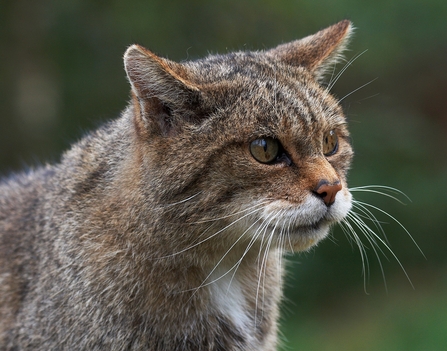- Two-year study finds South West’s landscapes could support a sustainable European wildcat population again after more than 100-year absence
- Independent research finds 70 to 80% of people in the South West are positive about wildcat reintroduction
- Return of wildcats to South West would be vital next step in helping to secure future of UK’s most critically endangered mammal
A new report published today reveals that the South West of England could support a reintroduction of European wildcats after more than a 100-year absence from the area, marking a vital next step in helping to secure the future of the UK’s most critically endangered mammal.
The study finds that a sustainable population of wildcats could flourish in the South West and that 80% of people surveyed in the region were positive about their reintroduction.
The comprehensive two-year investigation, undertaken by the South West Wildcat Project – a partnership of organisations led by Devon Wildlife Trust which includes Forestry England and the Derek Gow Consultancy – concentrated its analysis on four main aspects of wildcat reintroduction: 1) impacts on people and communities; 2) impacts on other wildlife; 3) impacts on farming livestock and pets; and 4) the long-term sustainability of a wildcat population after reintroduction.

